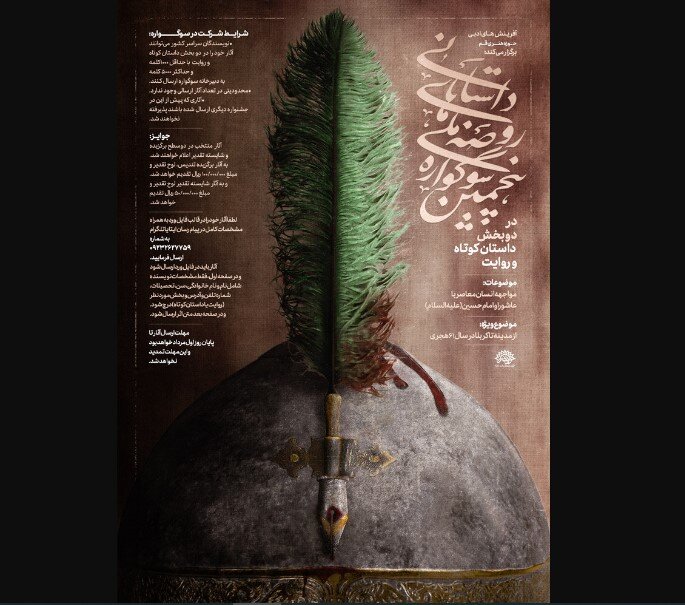New religious literature secretariat to be established in Qom during Narrative Rozeh festival

TEHRAN- A permanent secretariat dedicated to religious literature in the central province of Qom is set to be established, coinciding with the unfolding of the new edition of the Narrative Rozeh festival.
The announcement was made by the festival’s scientific secretary, Ali-Asghar Ezzatipak, during a press conference held at Tehran's Art Bureau on Tuesday.
The primary responsibility of this secretariat will be to host the annual Religious Book Awards in Iran, which aims to select and promote published works among enthusiasts of religious literature, Ezzatipak noted.
He also mentioned that the secretariat will focus on research in religious storytelling, book production, and educational initiatives.
Speaking about the festival, he emphasized that Persian literature is deeply intertwined with the events of Karbala and Ashura, especially in poetry.
“However, in the realm of prose, we have not made significant efforts to reflect this vital historical occurrence, despite Ashura’s cultural influence spanning from southern Lebanon to Iraq, Iran, Afghanistan, Pakistan, and Turkey,” he stated.
He emphasized the lack of storytelling regarding Ashura and added: “A key feature of the Narrative Rozeh festival is that a group of authors initially gathered to discuss this matter as during the COVID-19 pandemic, when mourning gatherings and rozehs were suspended, writers from Qom proposed storytelling about Karbala and Ashura. This initiative gained serious momentum over the past few years, culminating in a nationwide call for submissions this year, allowing writers to participate in two sections: narration and storytelling.”
The writer noted: “The stories of Ashura cannot simply emerge from a few festivals; for it to transform into a movement, it requires consistency, so that writers can convey their beliefs through storytelling and connect closely with the people.”
Ezzatipak stressed the importance of engaging with the community, addressing a persistent critique that writers are often distanced from the public. “We hope this festival results in the creation of pure, appealing, and engaging literature for the people, allowing writers to serve as a mirror for Karbala,” he added.
Regarding the judging of festival entries, he mentioned: “In this festival, we hosted works in two categories: narration and storytelling, emphasizing the native and pristine cultural heritage of various regions across the country.”
In another segment of the meeting, Seyyed Ali Naqib, the festival’s secretary elaborated on the details of the festival, announcing that the three specialized meetings were held in Qom, Isfahan, and Ahvaz, featuring contributions from esteemed scholars.
“A total of 400 works were submitted to the secretariat, including 220 in the narration section and 180 in the storytelling segment. Judging was conducted in three phases, culminating in the announcement of six distinguished and commendable works.”
The festival’s closing ceremony will be held on September 30, coinciding with the Day of Solidarity with Palestinian Children and Adolescents, in the municipality hall of Qom.
Rozeh Khani is a Shia Muslim ritual observed during the Mourning of Muharram. It involves gatherings that commemorate the tragic events faced by sacred figures in Islam. These assemblies aim to educate and guide the audience, enriching their understanding of Islamic thought and values.
SAB/
Leave a Comment